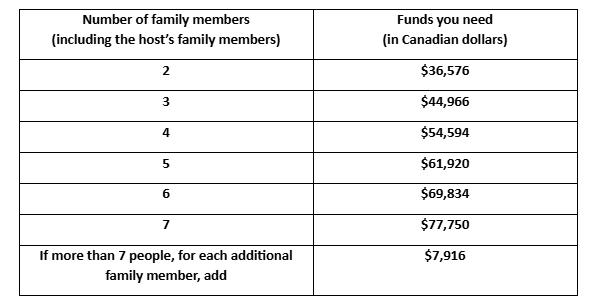Super Visa vs. Regular Visitor Visa: Understanding Your Options
BLOGS
1/31/2025


Are you planning to visit your child or grandchild in Canada, or are you hoping to bring your parents over for a visit? Navigating Canada’s visa process can feel overwhelming, especially with different visa options and strict requirements. In this blog, we’ll break down the key differences between a Super Visa and a Regular Visitor Visa, helping you decide which one best suits your needs.
1. Understanding Your Options
If you are looking for temporary visa options to visit family in Canada, there are two primary routes:
Regular Visitor Visa – A common choice for short-term stays.
Super Visa – A specialized option for parents and grandparents of Canadian citizens or permanent residents.
Each visa type has different eligibility criteria, stay durations, and financial requirements, so let’s dive deeper into these details.
I. Regular Visitor Visa
A Regular Visitor Visa is designed for individuals visiting Canada for tourism, family visits, or business purposes.
Maximum Stay: Typically up to 6 months per visit.
Extension: Possible, but not guaranteed.
Key Requirements:
Proof of sufficient funds for the visit.
Strong ties to the home country (job, property, family) to ensure return.
A valid passport.
A letter of invitation (if visiting a child or grandchild).
This visa is ideal for short-term visits, but if you’re looking for a longer stay, a Super Visa might be a better option.
II. Super Visa: A Long-Term Option for Parents & Grandparents
A Super Visa is specifically designed for parents and grandparents of Canadian citizens or permanent residents who wish to stay in Canada for extended periods.
Maximum Stay: Up to 5 years per visit.
Validity: Multiple entries for up to 10 years.
Key Requirements:
Must be a parent or grandparent of a Canadian citizen or permanent resident.
The host (child or grandchild) must meet a minimum income requirement.
Must have valid medical insurance for at least one year.
Must undergo a medical examination if required. Here’s a breakdown of the latest income requirements (as of June 3, 2024):
For instance, if your daughter is single and inviting both you and your spouse, her total family size would be three, meaning she must demonstrate at least $44,966 in income.
2. Which Visa Should You Choose?
Consider these two factors when deciding:
Length of Stay: If you plan on staying longer than 6 months at a time, the Super Visa is the better choice.
Financial Eligibility: If your child or grandchild does not meet the Super Visa’s income requirement, a Regular Visitor Visa might be a more viable option.
3. Overcoming Visa Refusals: What to Do Next
If your visa application was denied, don’t lose hope. Understanding the reasons behind a refusal can help improve your chances the next time.
Common Reasons for Visa Rejections:
Insufficient Financial Proof – Ensure both you and your host can demonstrate adequate financial support.
Concerns About Overstaying – Provide strong evidence of ties to your home country, such as employment, property, or family commitments.
Missing or Incorrect Documents – Even minor mistakes can lead to rejection.
Medical or Criminal Inadmissibility – Certain medical conditions or past legal issues may impact your application.
Steps to Improve Your Next Application:
✔ Carefully Review the Refusal Letter – Identify the exact reason for the rejection.
✔ Strengthen Financial Proof – Provide clearer documentation, such as tax assessments, pay stubs, or bank statements.
✔ Demonstrate Strong Ties to Your Home Country – A job letter, property ownership, or family commitments can support your case.
✔ Consult a Professional – An immigration consultant can provide tailored advice and help you avoid past mistakes.
Every case is unique, and a well-prepared application significantly increases your chances of approval. Whether you’re applying for the first time or reapplying after a refusal, ensuring all documentation is in order and demonstrating strong financial and personal ties will strengthen your case.
Need guidance on your visitor visa? Stay informed and contact us or book a consultation for expert advice!


Mapleaves Immigration Services
©2025 All rights reserved
Verify Authorized Representative
Only an authorized representative can provide Canadian immigration services to you for a fee. It’s law. If you use a paid representative who’s not authorized, your application may be returned or refused.


Contact: info@mapleavesimm.com
